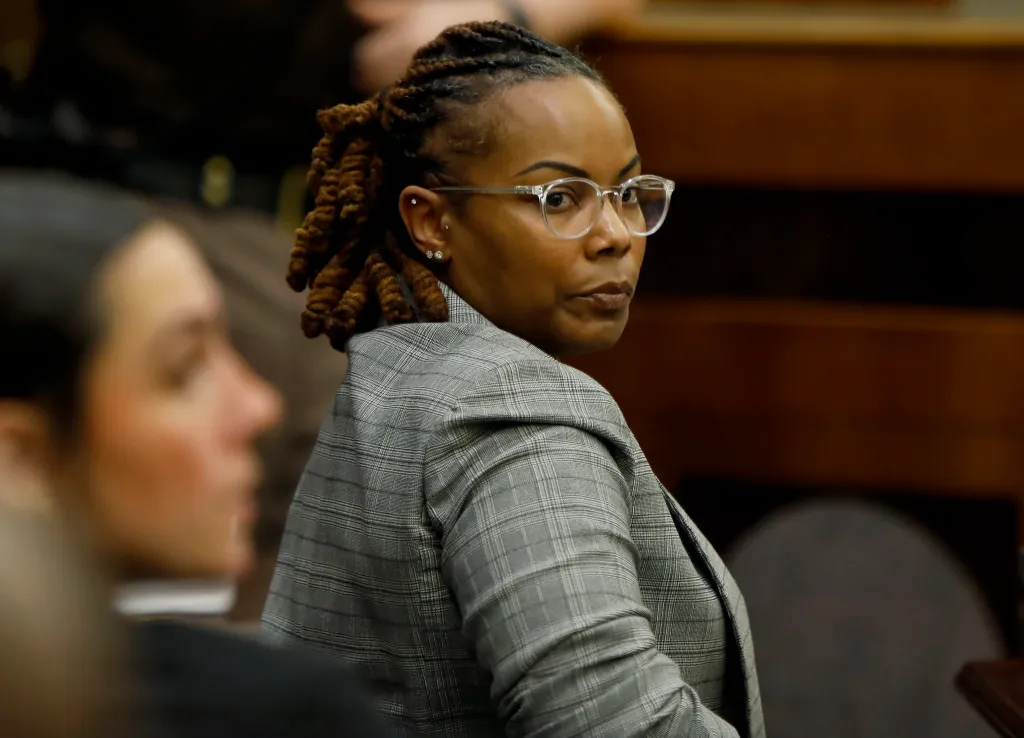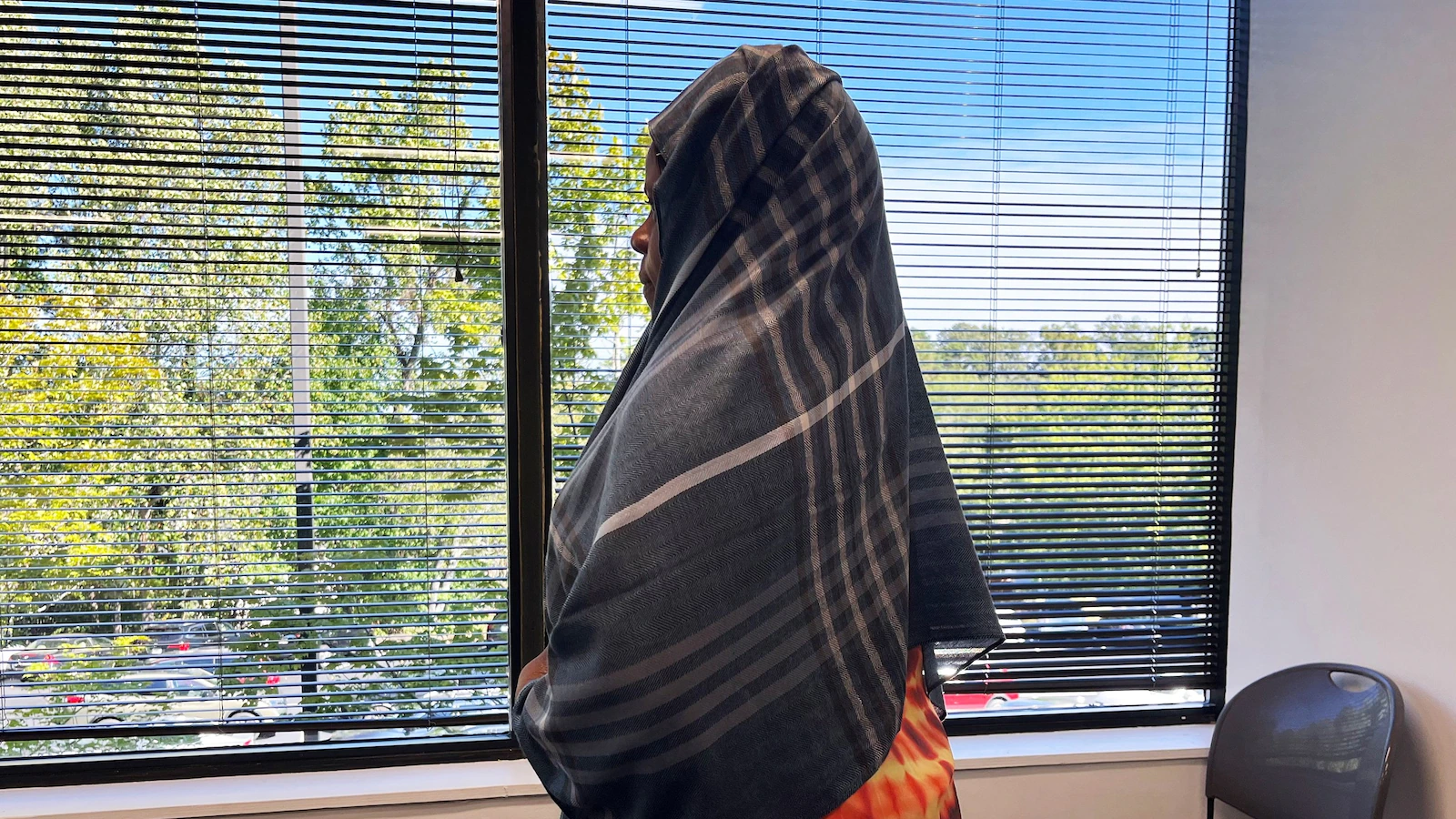Copyright Norfolk Virginian-Pilot

A education safety expert testified Monday that former Richneck Elementary School administrator acted appropriately when she did not search for a gun on a 6-year-old boy who later shot his teacher. That expert, Amy Klinger, was the primary witness on behalf of Ebony Parker, the former assistant principal at Richneck. Abby Zwerner, the former Richneck first grade teacher, was shot by the student during an afternoon reading class. In a week-long civil trial in Newport News Circuit Court, Zwerner contends that Parker ignored several clear warnings that the boy had a gun that day. A witness for Zwerner testified last week it was “almost shocking” that Parker didn’t take steps to search the boy. But Klinger had a different take. Klinger is an associate professor of educational Administration at Ashland University, the director of programs for the The Educators’ School Safety Network and the author of a book, “Keeping Students Safe Every Day”. “No one is the sole person responsible for school safety,” Klinger said. “Shool safety is a collaborative endeavor. Every person who is in that organization has roles and responsibilities related to safety.” Teachers, staffers, administration and students all have “a very critical role in school safety as well as responsibilities related to those roles.” Though an assistant principal is the aggregator for information, Parker would have depending on others to provide context. “A school administrator cannot be everywhere,” Klinger said. “They cannot see everything.” Moreover, she said, school administrators must be able to balance the level of threats and make sure not to overreact. It’s not proper, she said, “to go to DEFCON 5 on every single threat,” which she said “can make the school less safe because people become numb to it.” Parker’s attorney, Sandra Douglas, asked Klinger if Parker breached “any professional standards” on Jan. 6, 2023. “She did not,” Klinger said. Douglas then asked whether Parker “was indifferent to Ms. Zwerner” in regard to her safety. “She was not,” Klinger replied. While the plaintiffs’ case is about blaming Parker for the shooting, the defense is casting blame on others, too — such as Zwerner, reading specialist Amy Kovac, another first grade teacher Jennifer West and guidance counselor Rolonzo Rawles. “Those are the people that can see it, that are experienceing it and providing the context,” Klinger said. Those employees, Klinger said, did not remove the boy from the classroom to seach his bag. They did not call for a lockdown, clear classrooms or call 911. When two students told Kovac that the boy was armed, she went into Zwerner’s classroom to speak with him during class. When the boy would not allow his book bag to be seached, “she did no remove the book bag.” “She did not remove the student,” Klinger said. “She did not remove the other students.” She left the book bag in the room with the other students when she left to speak to Parker about the matter. When Zwerner was told of concerns about the boy having a gun, Klinger said, “instruction went on, and the students remained in the classroom,” Klinger said. Given the age of the student, Klinger said, the boy having a gun in school — as opposed to a a toy gun — did not seem “foreseeable.” An attorney for Zwerner, Kevin Biniazan, grilled Klinger during an intense cross-examination. He asked if an assistant principal can “just sit in their chair and wait for information to come to them.” “I think that an assistant principal can have a reasonable expectation that if there’s something she needs to know, people will tell her,” Klinger said. “So they should just assume everything’s okay unless somebody comes and tells her more?” Biniazan asked. Klinger said it doesn’t make sense for the administrator to “go door to door to ask everybody, Hey, is everything OK? … That’s no really feasible for the management of the school.” Biniazan noted that there wasn’t a random concern that an unknown student had a gun, but a specific concern about a specific student at a particular time. “Because communication is a two-way street, and getting good information is a two-way street, you would expect the assistant principal to attempt to get some information herself,” Biniazan said. He asked whether Parker ever “left her chair” to “go and inquire with the student” who was alleged to have the gun. “No,” Klinger acknowledged. “At what point in the day did Dr. Parker leave her desk to go talk to girl number one? Klinger said that Parker didn’t know who “girl number one” was since Kovac didn’t get the names. “So Dr. Parker’s obligation there stops because she doesn’t get good information, so she can sit back and just rely upon the fact that she didn’t get good information?” “That’s not what I said,” Klinger said. “I said it would be difficult to interview a student that you don’t know who that student is.” Contending that Parker knew for more than an hour that the gun at the school, he asked whether there was the evidence was “sufficient for her to suspect there was a gun at Ridgeneck Elementary School.” “It was sufficent for her to understand that there was a concern about the potential of a gun on campus,” Klinger said. The lawsuit contended that Zwerner approached Parker after 11:15 a.m. to say that the boy was “in a violent mood” and “threatened to beat up a kindergartner during lunchtime.” Parker didn’t look up or speak to Zwerner, according to trial testimony. But after Zwerner let the office, Parker told a reading specialist who was standing nearby, Amy Kovac, to pass on to Zwerner that she could call the boy’s mother to pick him up early if needed. Later that morning, two girls in Zwerner’s class went up to Kovac — who worked with the boy closely — to say that the boy had a gun. Kovac ended up sitting next to the boy during Zwerner’s class and asking him if she could search his bag. Kovac left the classroom to report what the girls had said, telling Parker that the bag had not been searched. Around 12:20 p.m., Zwerner was lining up the students for recess when the boy put on an oversized zip-up jacket and rummaged through his backpack and put both hands inside it. She texted Kovac to tell her what she saw. Kovac testified that she approached Parker and told her she would be searching the boy’s backpack while he was at recess, with Parker nodding as if she agreed with that. But when Kovac searched the boy’s backpack, no gun was found. Kovac said she went back to Parker and told her she had searched the backpack but found nothing. She told Parker that Zwerner saw the boy put something in his jacket pocket, with Parker responding that “He has little pockets.” When recess ended, another student told his teacher the 6-year-old showed him the gun at recess — and threatened to harm him if he told anyone. But when that was relayed to Parker, she said that the boy’s bag already had been searched. And when a guidance counselor asked to search the boy, Parker said no, noting the boy’s mother would soon be picking him up. Peter Dujardin, 757-897-2062, pdujardin@dailypress.com



